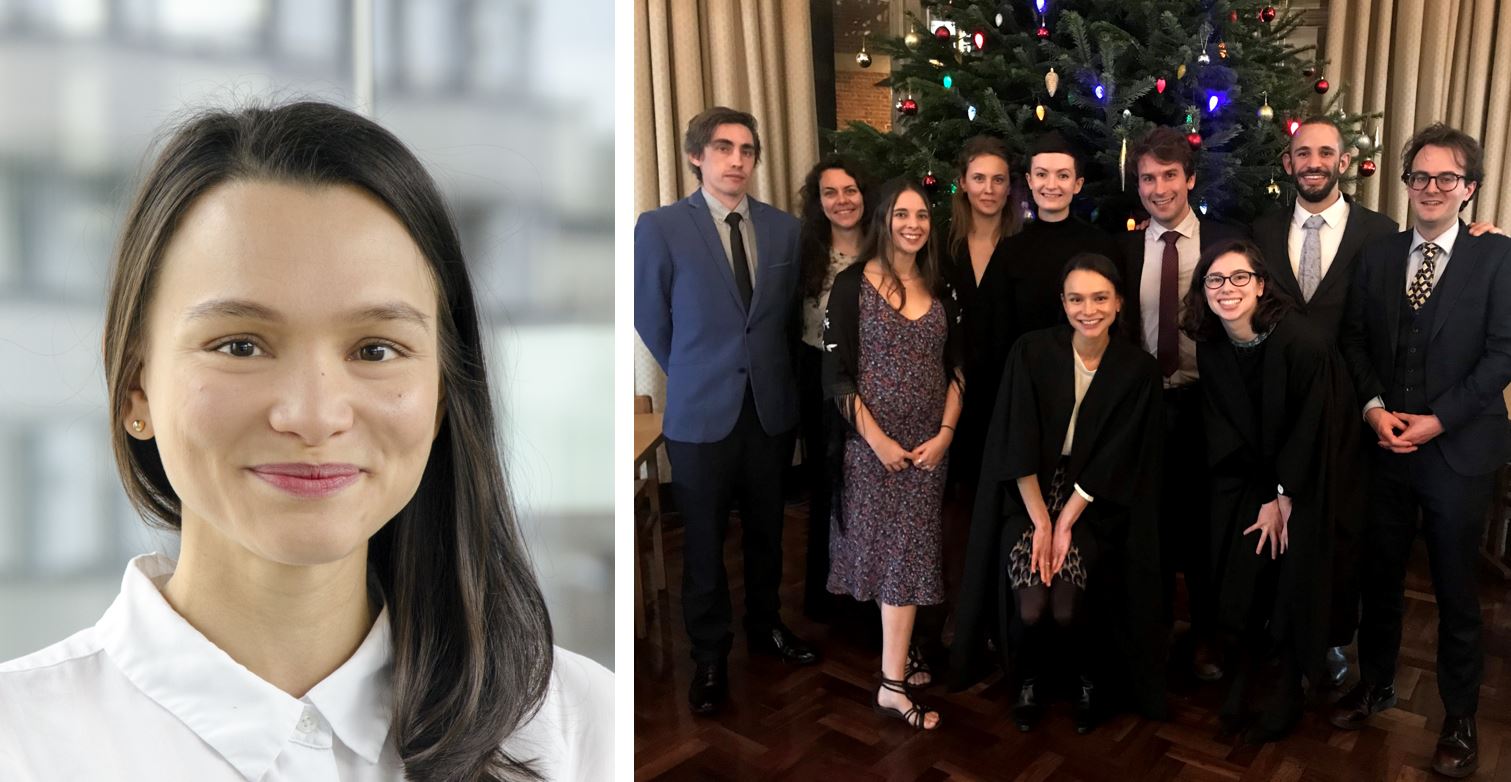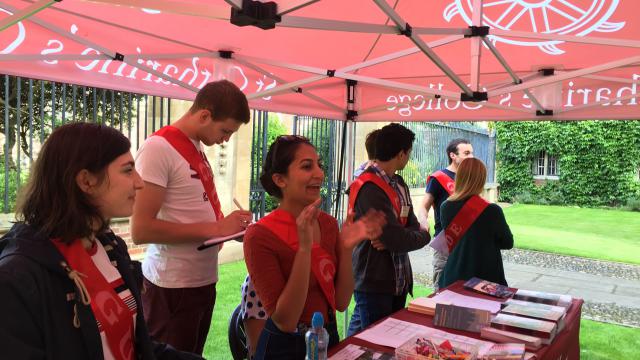Name: Nadene Dermody
Hometown: Cairns, Australia
Extracurricular interests: Running (a favourite route is along the river towards Milton) and cooking
Postgraduate degree: PhD in Cognitive Neuroscience
Life before Catz
“After completing an Honours degree in Social Psychology, I worked as a drug and alcohol researcher in a program run by the Australian Institute of Criminology, Australia’s national crime and criminal justice research agency. Conducting interviews with participants as part of this fascinating research motivated me to pursue a Master’s degree in Neuropsychology at Macquarie University, initially with the aim to better understand how brain injury can affect cognition and behaviour, and to educate those who work in the criminal justice system of these effects. However, while completing my Master’s degree, I took up a role as a research assistant in Dr Alexandra Woolgar’s cognitive neuroscience laboratory and found this research incredibly stimulating. Dr Woolgar then moved to the MRC Cognition and Brain Sciences Unit in Cambridge, and kindly helped me submit an application to join her to start my PhD.”
Life at Catz
“The collegiate system was entirely new to me so I wasn’t sure what to expect! Catz has proven to be a magical place where you can meet and learn from a diverse group of people and subjects, which is unusual in other higher education settings. I had heard rumours of Catz’s reputation for friendliness and have found the community to be very supportive, with help on hand from Graduate Tutors, Fellows and other postgraduates: socialising in the Middle Common Room in particular encourages you to meet others outside your research specialty and think about your project in new ways.”
Postgraduate studies
“In order to function efficiently in our chaotic world, we constantly select which elements of our environment are relevant to our current task, to the exclusion of the wealth of other information available to us. How our brains are able to do this is still not well understood, although a network of regions, known as the multiple-demand network (MDN), seem to be particularly important in facilitating this process.
My research group is trying to better understand the role of the MDN in selective attention and goal-directed behaviour using multivariate pattern analysis techniques combined with neuroimaging, such as fMRI and MEG. Within this context, I am particularly interested in how the information held in the MND might be exchanged with more specialized regions, such as the visual cortex, to give rise to our amazing ability to rapidly attend to goal-relevant information.”
The Harding Distinguished Postgraduate Scholars Programme
“I don’t believe that a lot of scholarships offer a sense of community, and that’s been very different to my experience as a Harding Distinguished Postgraduate Scholar at Cambridge: as part of a group of 23 Scholars in the first year of the programme, it has been possible to get to know other scholars well and meet for group events. The availability of additional research funding has also provided me with an added sense of security.”
Advice for undergraduates thinking of applying for postgraduate studies
“Follow your interests, but also try to do what you can to ensure you have a good network to support you. If you are captivated by a particular topic, it is always worth following up but, equally, you shouldn’t feel pressured to know what that passion or interest might be before you graduate. After all, I ended up moving across several different jobs in government and research before I identified what I wanted to study. I do think having an incredibly supportive supervisor/s is very important though. If you have an inkling already of what you might like to do, take the time to discuss your ideas with a potential supervisor and understand if your interests, working styles, and expectations are compatible before committing to a specific topic and applying to an institution.”






